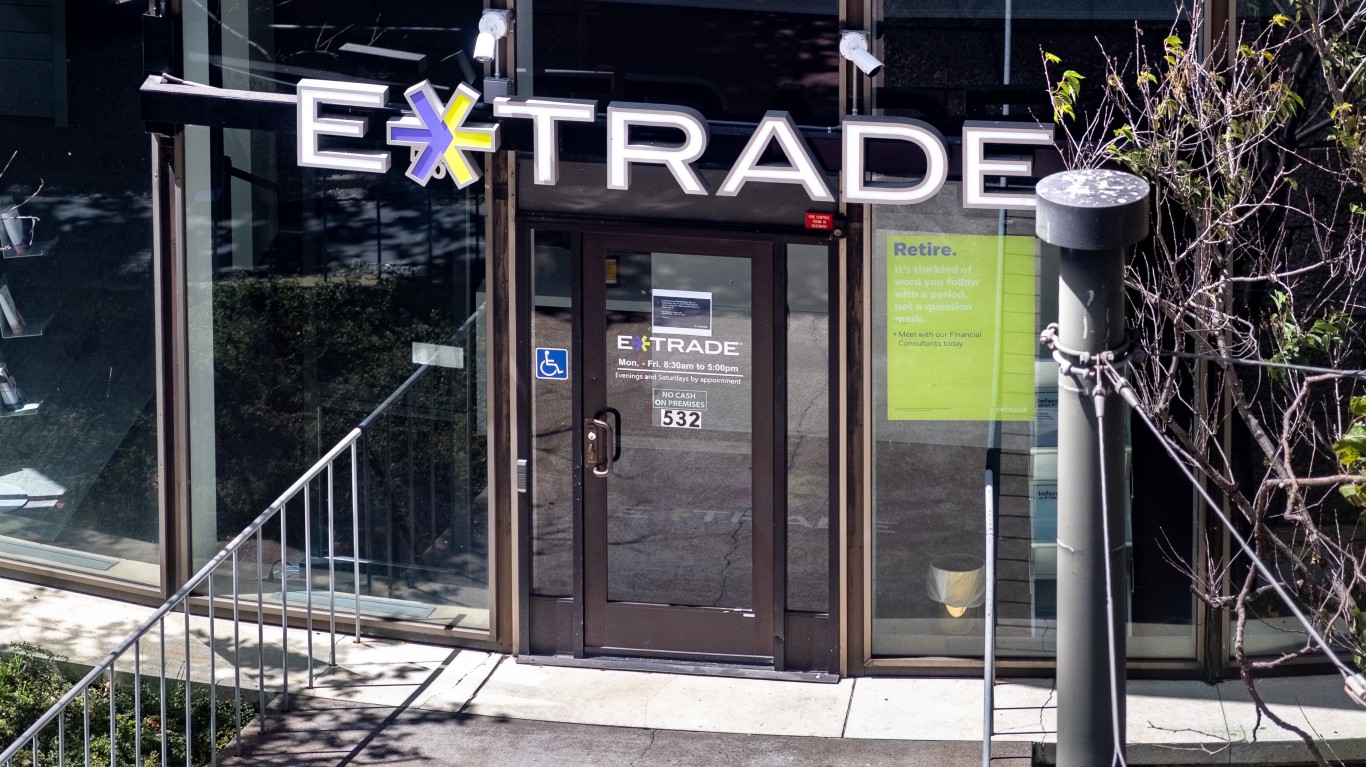
If you’re looking to get into trading stocks, you need to sign up for a broker service. More than likely you have been looking at online trading options like E*Trade and Robinhood (NASDAQ:HOOD), but which one should you pick, if any? How do they compare? Is one better than the other in certain areas? We will answer all those questions and more in our full comparison between the two.
Why Are We Talking About This?
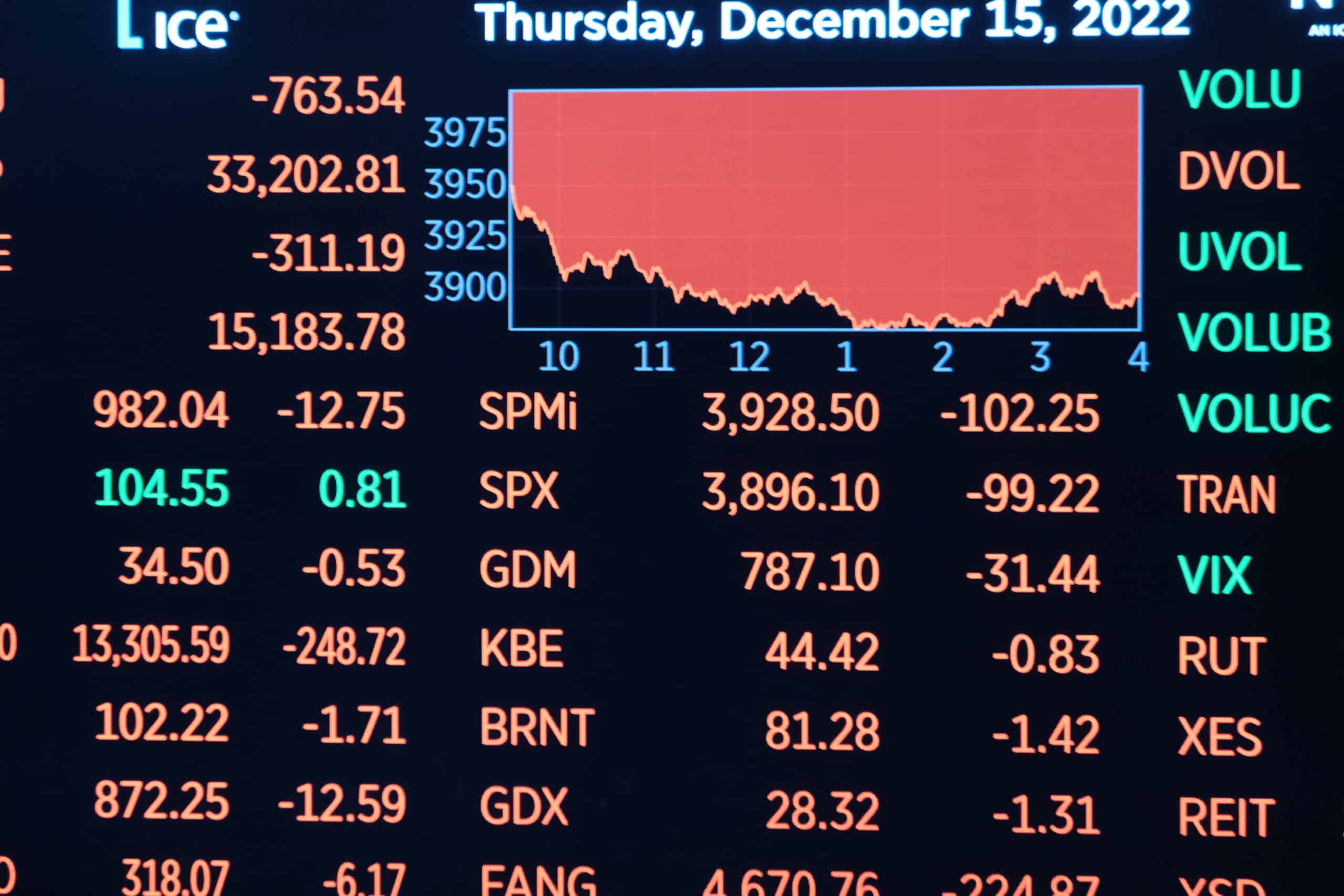
Deciding where to invest your money is a big decision. The features and availability of stocks are just two of the things you must consider beforehand. Other items like accessibility, stability of the company, and perks and benefits should also be factored into your decision process. While you can always transfer your money and assets to another broker later, it usually involves a fee and a lot of hassle, and we want to help you avoid that process altogether if possible.
Background on E*Trade
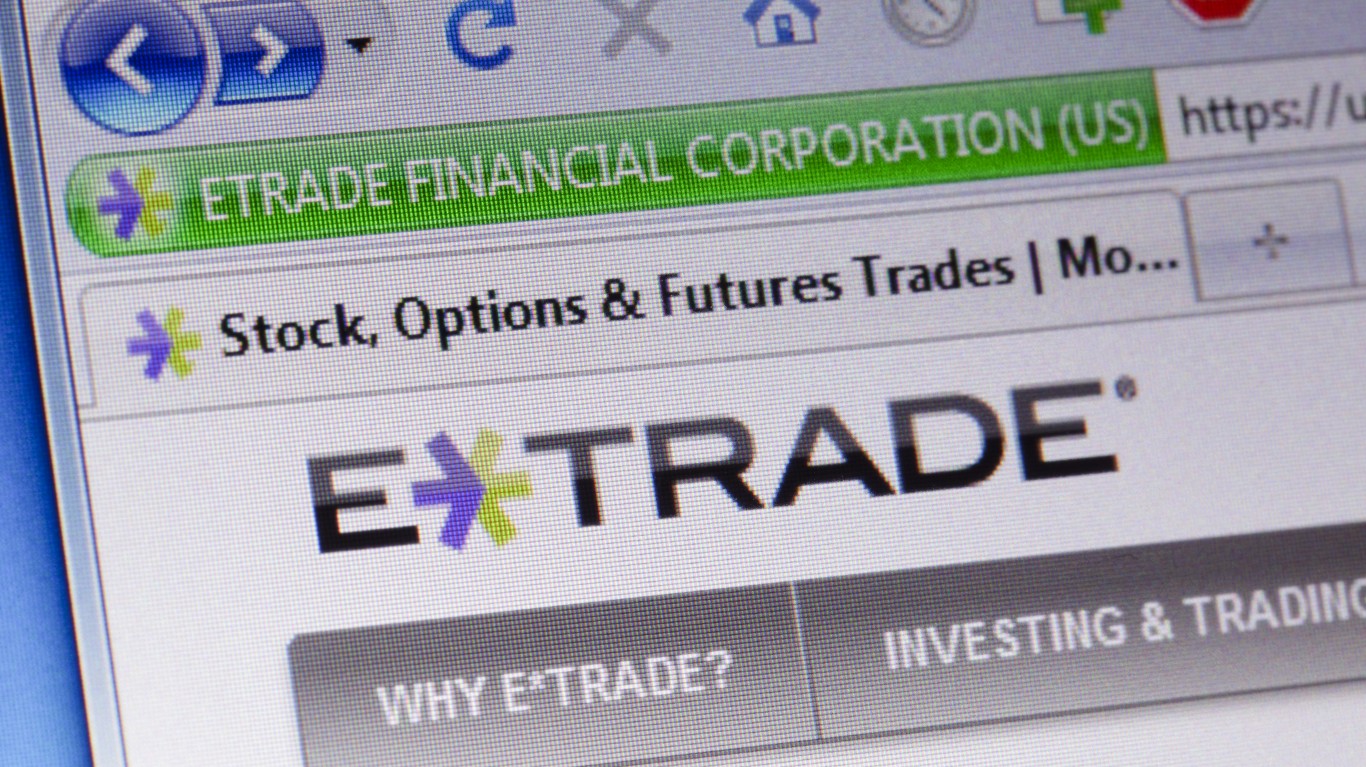
E*Trade was among the first online trading platforms, launched in 1991 before going public in 1996. It has grown quickly over the years due to making stock trading more available to regular people who didn’t have the funds necessary to outsource their trading to an asset manager or professional investor. E*Trade now has over five million customers and manages over $360 billion in assets.
Among E*Trade’s services, the most popular have been its online trading platform and the downloadable E*Trade software, E*Trade Pro. In fact, E*Trade Pro has been lauded as one of the best trading offerings in the industry for new and expert traders alike, though recent developments have pushed it to the sidelines. You can learn more about E*Trade Pro in our full review here.
In 2020, E*Trade was acquired by Morgan Stanley (NYSE:MS), which has brought new features and products to the E*Trade platform along with some changes both good and bad. Some of these changes include the addition of banking services like a high-interest savings account and checking accounts, the option to add a debit card to your investment account, and much more.
After the launch of Robinhood and other no-commission trading platforms, E*Trade eliminated its own commission fee structure along with many other fees in order to remain competitive.
Background on Robinhood
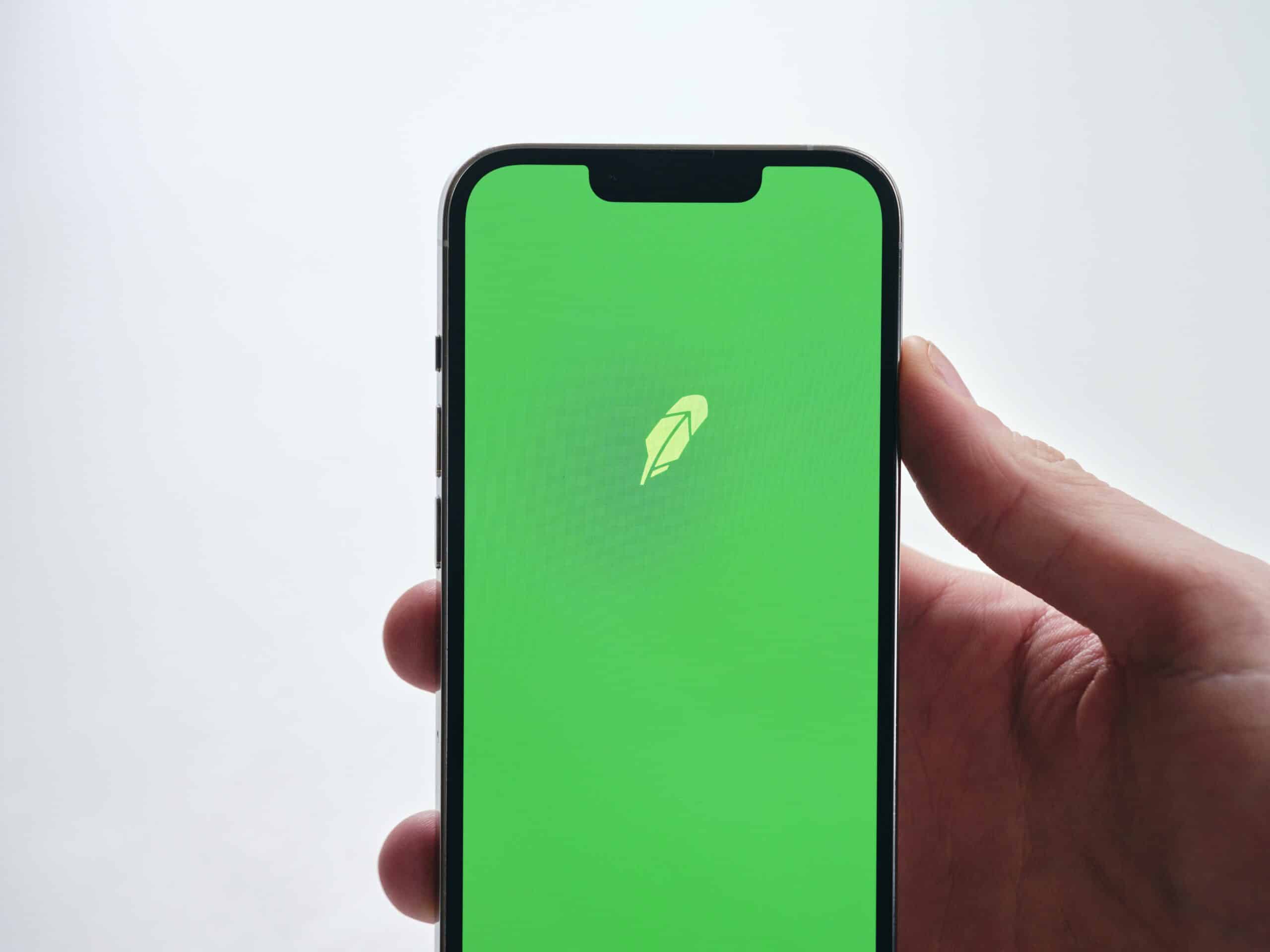
Robinhood launched in 2015 with its mobile app that offered commission-free trades, no account fees, and a sleek, simplified design that made trading easy and accessible to young and new traders.
When it launched, Robinhood experienced significant growth and attention and now boasts over 11 million active users every month with over 23.4 million funded accounts. Robinhood saw most of its growth among the millennial generation, with an average age of 26. Around half of all the users on the app use it on a daily basis and over 90% use it at least once per week. This has added millions of users and billions of transactions that did not exist before Robinhood entered the industry.
Robinhood launched its cryptocurrency wallet service in 2022 and already has more than two million users.
E*Trade Vs. Robinhood: A Comparison
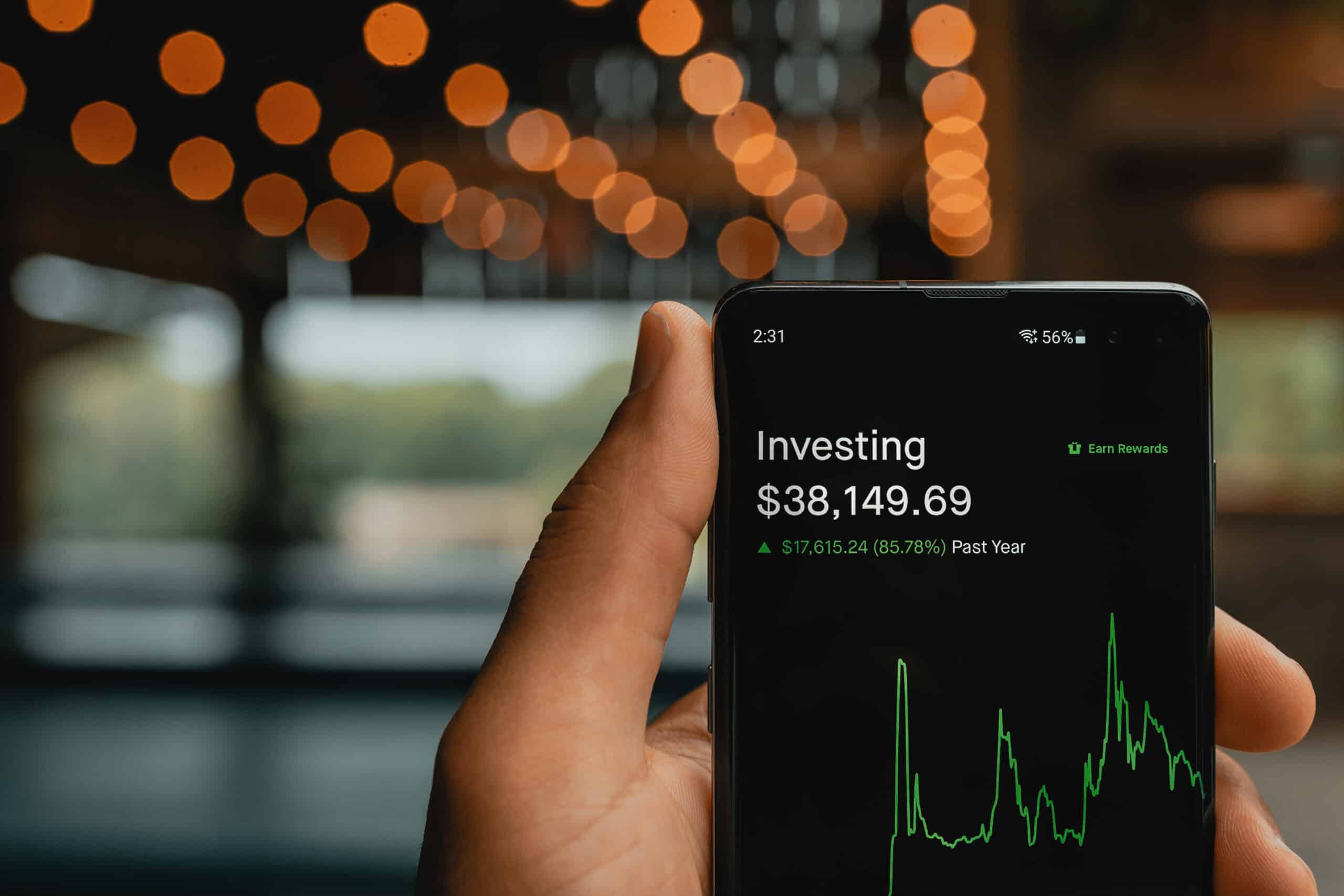
Even though both platforms allow stock trades for free, they vary wildly in the services they provide and it can be hard to compare them directly. Generally, E*Trade appeals more to aspiring professional traders and investors who want an extensive range of investment options, tools, analyses, and market information. On the other hand, Robinhood appeals to people who want a simple, fast, and easy way to trade popular stocks and want to avoid fees and commissions at all costs.
Since Robinhood is only a trading platform, we will compare the trading features of both companies. Since its acquisition by Morgan Stanley, E*Trade has added many more banking and investment options, we will not compare those in this review. You can read more about them in our full E*Trade review here.
Neither company has an account minimum value requirement and neither charges commissions on stock trades. E*Trade charges a flat fee for options contracts at $0.65 per contract, while Robinhood has no options fees. Both services will charge you a fee to transfer your account to another broker, however, Robinhood will reimburse you for the fee another broker charges you to transfer your holdings to Robinhood (up to $75).
E*Trade has a much larger selection of tradeable assets, including more than 4,000 mutual funds with no transaction fees. It also offers a full range of tradeable securities including futures and bonds, while Robinhood does not offer futures, and bonds are only available through bond ETFs. On the other hand, Robinhood does allow the purchase and sale of cryptocurrencies, while E*Trade does not, and offers a digital wallet to manage and protect your digital assets.
When you open a brokerage account, you will need to transfer some money in to activate your account, and it is best to keep some funds in your account to cover any losses and make trading faster and easier. Most brokerages do not pay any interest on your uninvested funds. E*Trade has a very low rate of 0.01% while Robinhood pays 1.5% for free accounts and a generous 5% for Robinhood Gold accounts.
Speaking of Robinhood Gold, this service is Robinhood’s paid account tier, charging $5.00 every month for access to higher interest rates, more account features, and better market data. It gives users access to Morningstar market data and NASDAQ Level II data.
E*Trade has no higher paid tiers, but it does offer three different ways to access the market. These are the normal platform, Power E*Trade, and E*Trade Pro. All have the same assets available for trade but have different features and tools to help professionals make the most informed trading decisions. E*Trade Pro is the downloadable program that professionals love. If you’ve ever had the dream of creating your own in-home trading floor, this is definitely the tool for you, and we could spend days just learning about all the tools and features it has. However, users need to maintain a certain volume of trades and account value in order to qualify for it, and you have to request the download link. Ever since the acquisition by Morgan Stanley, E*Trade has downplayed the E*Trade Pro service in favor of Power E*Trade, which is a browser-based platform.
However, to make the most of the E*Trade platform, like prediction tools and customizable analysis charts, you will need to subscribe to market data. Some of these subscriptions are free while others charge a small monthly fee. You can read more about this in our review of E*Trade Pro here.
The Power E*Trade platform and the normal E*Trade platform are two different apps on smartphones while Robinhood has only one app.
Both companies offer 24/7 customer service and have done a fantastic job of making their platforms accessible and easy to use.
If you only want to make a few casual trades in stocks, then we might recommend Robinhood because of its simple design and educational resources. A generous referral program, interest rates on uninvested cash, and low fees make Robinhood a simple choice. However, if you want to become a skilled and professional trader, E*Trade would probably have all the tools and room you need to grow. With more tools than you can shake a stick at and a wider variety of tradable assets, E*Trade as more than enough to keep an aspiring trader busy for years to come.
If you are curious about any other part of the E*Trade platform, check out this page: a regularly updated list of all our E*Trade guides, news coverage, and lists of benefits.
Are You Ahead, or Behind on Retirement? (sponsor)
If you’re one of the over 4 Million Americans set to retire this year, you may want to pay attention.
Finding a financial advisor who puts your interest first can be the difference between a rich retirement and barely getting by, and today it’s easier than ever. SmartAsset’s free tool matches you with up to three fiduciary financial advisors that serve your area in minutes. Each advisor has been carefully vetted, and must act in your best interests. Start your search now.
Don’t waste another minute; get started right here and help your retirement dreams become a retirement reality.
Thank you for reading! Have some feedback for us?
Contact the 24/7 Wall St. editorial team.





